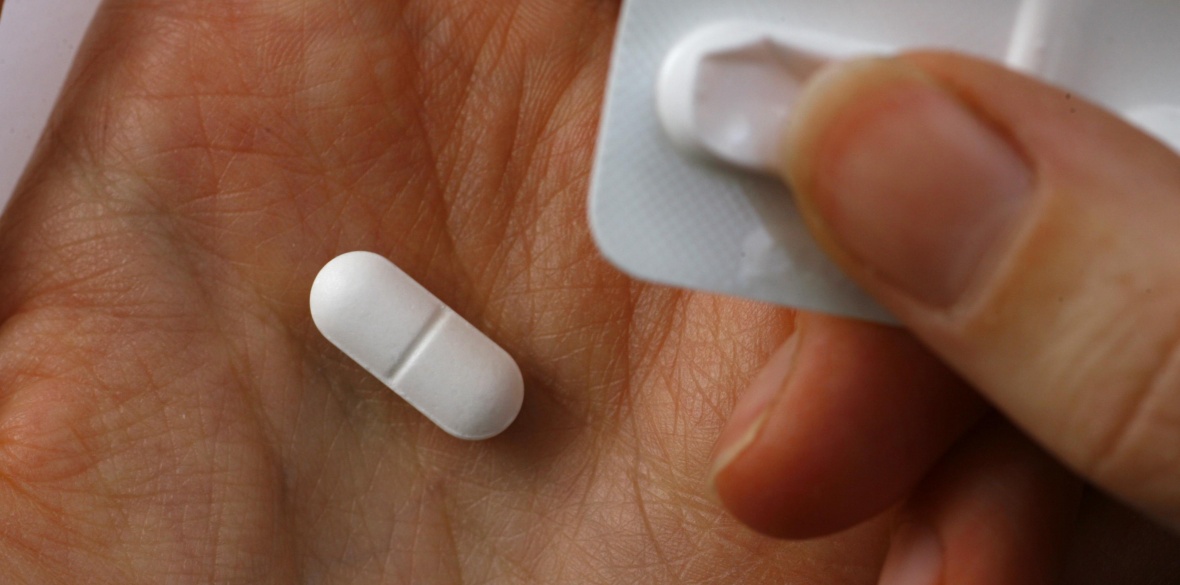This is the last article you can read this month
You can read more article this month
You can read more articles this month
Sorry your limit is up for this month
Reset on:
Please help support the Morning Star by subscribing here
THE outrageous prices demanded by pharmaceutical companies for drugs developed with public money expose a brazen falsehood that lies at the heart of “free market” ideology.
They also underline the scandal that sees private corporations wield power of life and death over human beings by setting their own price for essential treatment.
Opponents of socialism argue that only the market stimulates innovation — that without the motive of private profit experimentation and discovery will cease and human progress falter.
But three of the five most expensive cancer drugs were developed with publicly funded research, today’s report from the Missing Medicines Coalition reveals.
This should not surprise us. From the internet (built on the TCP/IP protocol invented by US telecoms experts Vincent Cerf and Bob Kahn on a US government grant) to computers (Alan Turing’s pioneering work was carried out at the state-owned National Physical Laboratory) to space travel and heart transplants, publicly funded and commissioned research has produced many of the world’s greatest technological breakthroughs.
Drug companies claim the profit they make from their products is essential to funding research into new ones. Actually Big Pharma spends far more on marketing than it does on research. In any case, as the late socialist writer Mike Marqusee wrote for this newspaper back in 2013, when it comes to scientific inventions or developments “the rationale for ... monopoly crumbles. Scientific research is cumulative and collective. The development of [cancer drug] Revlimid was only possible because of a chain of advances in molecular biology and other disciplines.”
In fact, the much-vaunted defence of intellectual property rights — a key plank of neoliberal trade treaties being pushed worldwide and one of the bones of contention between the United States, which wants access to markets without its companies being required to share technology, and China, which argues private firms benefiting from access to its economy, people and infrastructure should share their expertise — has tragic consequences.
This is true because it raises the prices of life-saving medicines. Even in Britain, one of the wealthiest countries in the world, our underfunded NHS is forced to ration access to drugs that could save lives. In poorer Asian and African countries, the enforcement of pharmaceutical patents kills. This was a significant driver of public opposition to the now derailed Trans-Pacific Partnership, which included measures to ban cheap generic and “off-label” medicines, leading an analyst to conclude that if the treaty passed “low-income patients in developing countries will either have to pay more for the same drugs they had been getting previously, or will no longer be able to afford them.”
It’s also true of less essential but commercially massive fields of research. Activists often rightly decry the cruel testing of cosmetic products such as shampoo or make-up on animals on the grounds that human vanity or corporate profit are not good reasons for inflicting suffering on animals. Defenders of the practice argue that the tests are needed to ensure products are not dangerous. But how much testing is pointlessly replicated by firms jealous of their unique formulas, unwilling to share evidence from previous trials?
It’s high time we recognised that researchers can be motivated by nobler things than profit — the example of penicillin’s discoverer Alexander Fleming, who waived his right to the discovery and transferred the patent to the US and British governments so the substance could be mass produced, or of polio vaccine pioneer Jonas Salk who was placed under surveillance by the FBI as a suspicious character after declining to patent it and pointing out that he had been paid for his work on it already in the form of his wages, demonstrate this.
The “right” of companies to restrict access to information is not a driver of progress but an impediment to it — and one with lethal results when it comes to the pharmaceutical industry.











